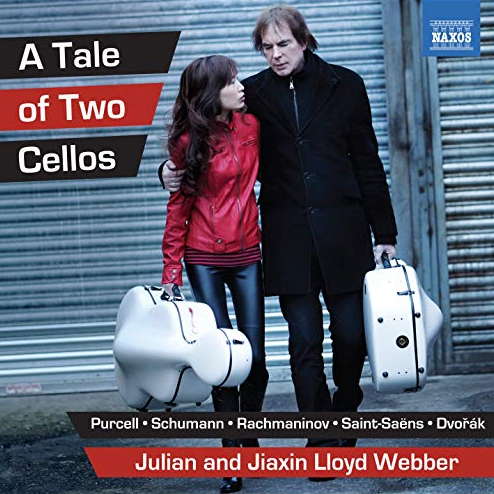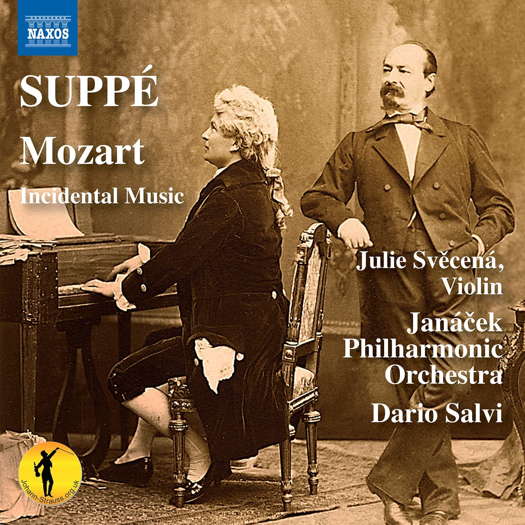 SPONSORED: CD Spotlight. Uncommon Piquancy - Music for two cellos, heard by Howard Smith.
SPONSORED: CD Spotlight. Uncommon Piquancy - Music for two cellos, heard by Howard Smith.
All sponsored features >>
 DISCUSSION: What is a work? John Dante Prevedini leads a discussion about The performing artist as co-creator, including contributions from Halida Dinova, Yekaterina Lebedeva, Béla Hartmann, David Arditti and Stephen Francis Vasta.
DISCUSSION: What is a work? John Dante Prevedini leads a discussion about The performing artist as co-creator, including contributions from Halida Dinova, Yekaterina Lebedeva, Béla Hartmann, David Arditti and Stephen Francis Vasta.
 DISCUSSION: John Dante Prevedini leads a discussion about Music and the Visual World, including contributions from Celia Craig, Halida Dinova and Yekaterina Lebedeva.
DISCUSSION: John Dante Prevedini leads a discussion about Music and the Visual World, including contributions from Celia Craig, Halida Dinova and Yekaterina Lebedeva.

Overwhelmingly Tuneful
GERALD FENECH listens to rare music by Franz von Suppé
'... vibrant playing full of unalloyed joy.'
Franz von Suppé (1819-1895) was born in Dalmatia, a distant relative of Donizetti. He is universally famous for the many glorious overtures that he wrote, apart from a host of other pieces, mostly stage-works. Having studied music from a young age, he went to Vienna and became part of the Theater an der Wien, directed by Franz Pokorny, who was Suppé's great friend and inspiration throughout the initial part of the composer's career. Suppé had to learn German, and became a very successful composer of operetta and other works for the stage over the next fifty years.
Together with such greats as Johann Strauss II and Carl Zeller, he represents the Golden Age of Viennese Operetta. Among Suppé's great output was incidental music for many popular plays, including the one represented here. Mozart by Leonhard Wohlmuth (1823-1889), produced at the Theater an der Wien on 23 September 1854, is one of nine stage-works completed by the composer that year. It is an example of a 'life portrait of an artist' where the music underlines and accompanies the action on stage, so functions rather more prominently than intermittent pieces of incidental music. This work is very much of a rarity, so I think it is wholly pertinent that one gives an appropriate description of how the composition is laid out.
The overture to the play, recorded in its entirety for the first time here, has a tenary structure, opening and closing with the Act II March from Le Nozze di Figaro (Ecco la marcia).
Listen — Suppé: Overture (Mozart incidental music)
(8.574383 track 1, 0:00-0:59) ℗ 2022 Naxos Rights (Europe) Ltd :
The content is a potpourri, but conveys the serious concerns of the drama. The first part emphasises the love interest between Mozart and his wife Constanze: the search ('Wer ein Liebchen hat gefunder' from Die Entführung aus dem Serail) and the courtship (Don Giovanni's serenade 'Deh vieni alla finestra').
The ever present threat of mutability and mortality makes an appearance in the eschatological music of the statue in Don Giovanni, with a brief reference to the magic of Die Zauberflöte. The joys of life return with references to the dance ('Se vuol ballare' from Figaro and the minuet from Don Giovanni), Papageno's magic glockenspiel and the rapture of wine in Don Giovanni's Champagne Aria, before the return of the reassuring march.
The various acts unfold the story of the composition of some of Mozart's operas and of the Requiem, as a comment on the composer's life and work. The Concertino, with its beautiful A minor movement, presents a miniature violin concerto with variations on love themes, especially Belmonte's opening aria from Die Entführung and Don Giovanni's seduction of Zerlina ('La ci darem la mano').
Aphorisms take us to the world of operatic production (Die Schauspieldirektor), followed by a movement leading us into Mozart's later life with fleeting themes from Die Zauberflöte, the innocent joy of Papageno overtaken by the serious hymn 'O Isis und Osirio' and the three solemn masonic chords.
The late Symphony No 39 accompanies the Bestallungen of the Requiem, with the Schauspieldirektor now in the minor key. The penultimate act Fantasie moves into the dark world of deathly intimation, the music of the Requiem gradually taking over with the Tuba mirum from the Dies irae.
Listen — Suppé: Fantasie (Mozart incidental music, Act IV)
(8.574383 track 7, 0:24-1:24) ℗ 2022 Naxos Rights (Europe) Ltd :
Suppé's original music is prominent here, and the extended trombone recitative is clearly emphasised by the organ writing - all culminating in the full statement of the Lacrymosa.
The final Enklärung in the light of death has reference to the Violin Sonata No 33, with a sinister atmosphere generated by mysterious string tremolos and the organ with sudden forte chords.
Listen — Suppé: Enklärung (Mozart incidental music, Act IV)
(8.574383 track 8, 2:56-3:56) ℗ 2022 Naxos Rights (Europe) Ltd :
Suppé's Overture Die Afrikareise dates from 1883 and the version on this recording is from Suppé's original manuscript. The piece is bright and energetic and produces a striking effect. The concept of tourism was much in the air at the time, not least because of the extraordinary novels of travel adventure by Jules Verne, and this work reflects much of that ongoing trend to want to discover foreign lands. The opening presents the desire for expedition with wistful dreams of far away places and happy times. A perky spirit of adventure asserts itself. Full-scale happy tourism unfolds in the typically ingratiating Viennese waltz, with a final joyful, even exuberant, celebration of the wonderful journey to Africa.
Listen — Suppé: Die Afrikareise Overture
(8.574383 track 9, 4:58-5:58) ℗ 2022 Naxos Rights (Europe) Ltd :
These two pieces are contrasting in more ways than one, but the music is vintage Suppé: vivacious, overwhelmingly tuneful, exquisitely crafted and abundantly warm and incisive. The incidental music for the Mozart play also reveals Suppé's strong dramatic sense of action and his flowing ability in storytelling.
Dario Salvi conducts with unreserved energy that makes the music catch fire, and his Janáček Philharmonic Orchestra players respond with some vibrant playing full of unalloyed joy. This is super Suppé, wrapped in a must-get disc for your collection.
Copyright © 7 June 2022
Gerald Fenech,
Gzira, Malta

CD INFORMATION - SUPPÉ: 'MOZART' INCIDENTAL MUSIC


